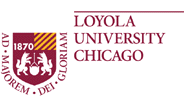

 |
 |
Honor Code
Outline for October 19th meeting of the committee on professionalism at SSOM
The criteria that comprise an official honor code are four (Harvard University Study, 1985):
An honor code allows for non-proctored exams.
In matters of infraction, an appeal is made to an honor board or court, with substantive student representation.
Reporting of any infractions by all others subject to the code.
An honor code has as one of its components a written "honor pledge."
Upon review of approximately 15-20 "honor codes" we found:
Most codes are on par with what SSOM now has in its Academic Policy Manual. These codes primarily consist of a "Thou shalt not…" approach, and if you still choose to do so, here is what will happen to you.
There were some notable exceptions.
The AMSA Code of Medical Ethics
The Noncognitive Standards of Ohio State University College of Medicine
Michigan State University Medical School
These exceptions were notable because:
These principles were complete insofar as they accounted for all four years of the medical school experience.
They expressed a standard for expected professional behavior through articulating the values a professional should evidence (respect, competence, responsibility, etc.), not merely a laundry list of potential pitfalls. The development of these professional values and traits could serve not only medical students, but physicians as well.
They were specifically descriptive of the concrete expectations that the professional standards entailed (punctuality, refraining from inappropriate discussion of cases, expectations for reporting breaches of professional behavior).
Coming from our review, suggest the following:
We seek to go beyond the traditional honor code approach.
The modified honor code should NOT indicate what students should not do. It should indicate to students what they SHOULD do, and at the same time, what will happen to them if they fail to do.
The statement/code/standards should include the best aspects of the statements indicated above.
This new modified honor code should be a reflection of the statement on professionalism, however that takes shape.
The statement will consist of an interpretation of the statement on professionalism for students.
Everyone should be held to the same standard, yet the manner in which the standard is actualized will be different for each member of the SSOM (faculty, student, administrator, etc.).
Back to 10/19/2000 meeting minutes
Return to Professionalism Committee Home Page
©2001 Loyola University Stritch School of
Medicine (SSOM). All rights reserved.
This document is intended for viewing by authorized personnel within SSOM only.